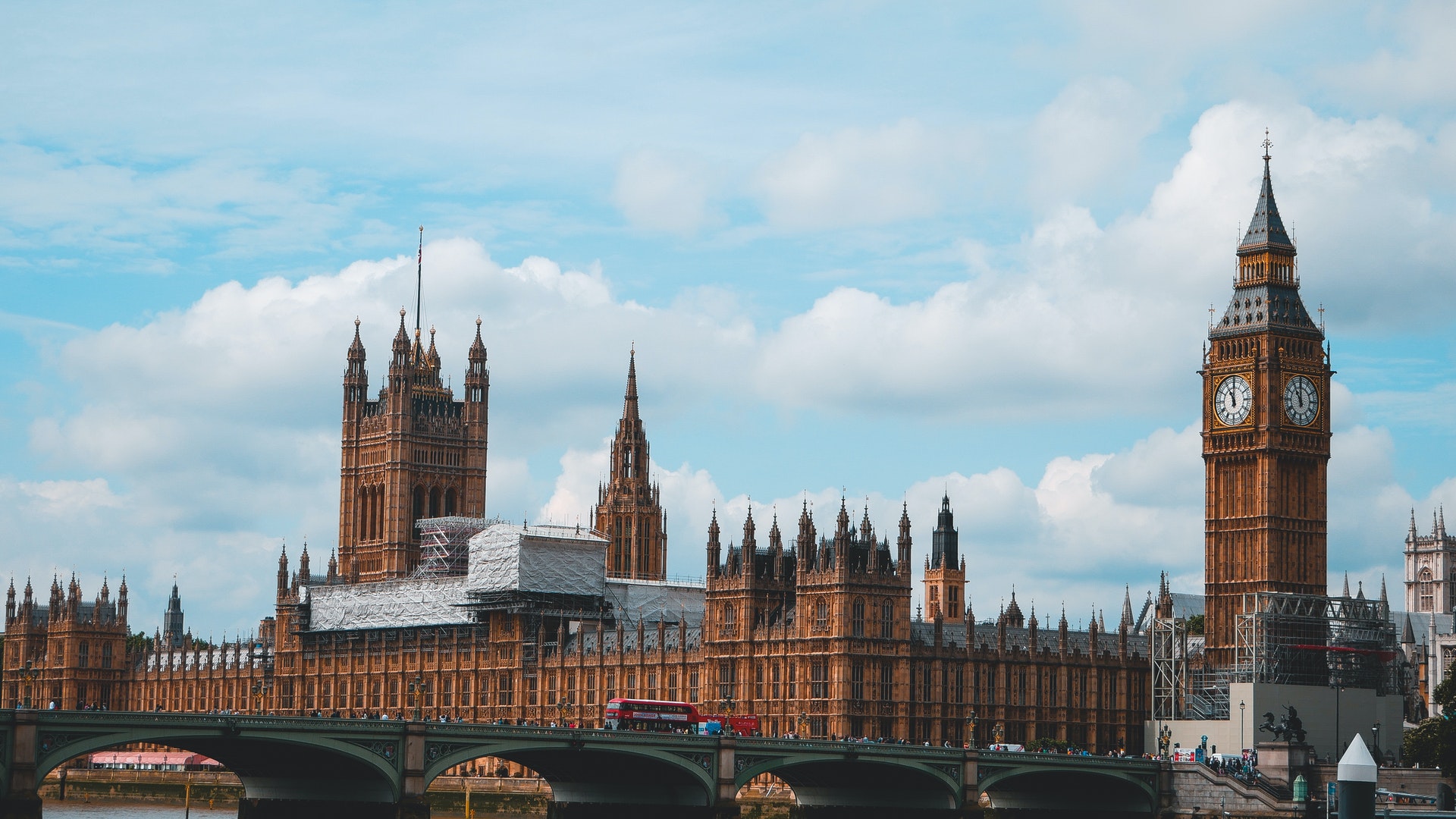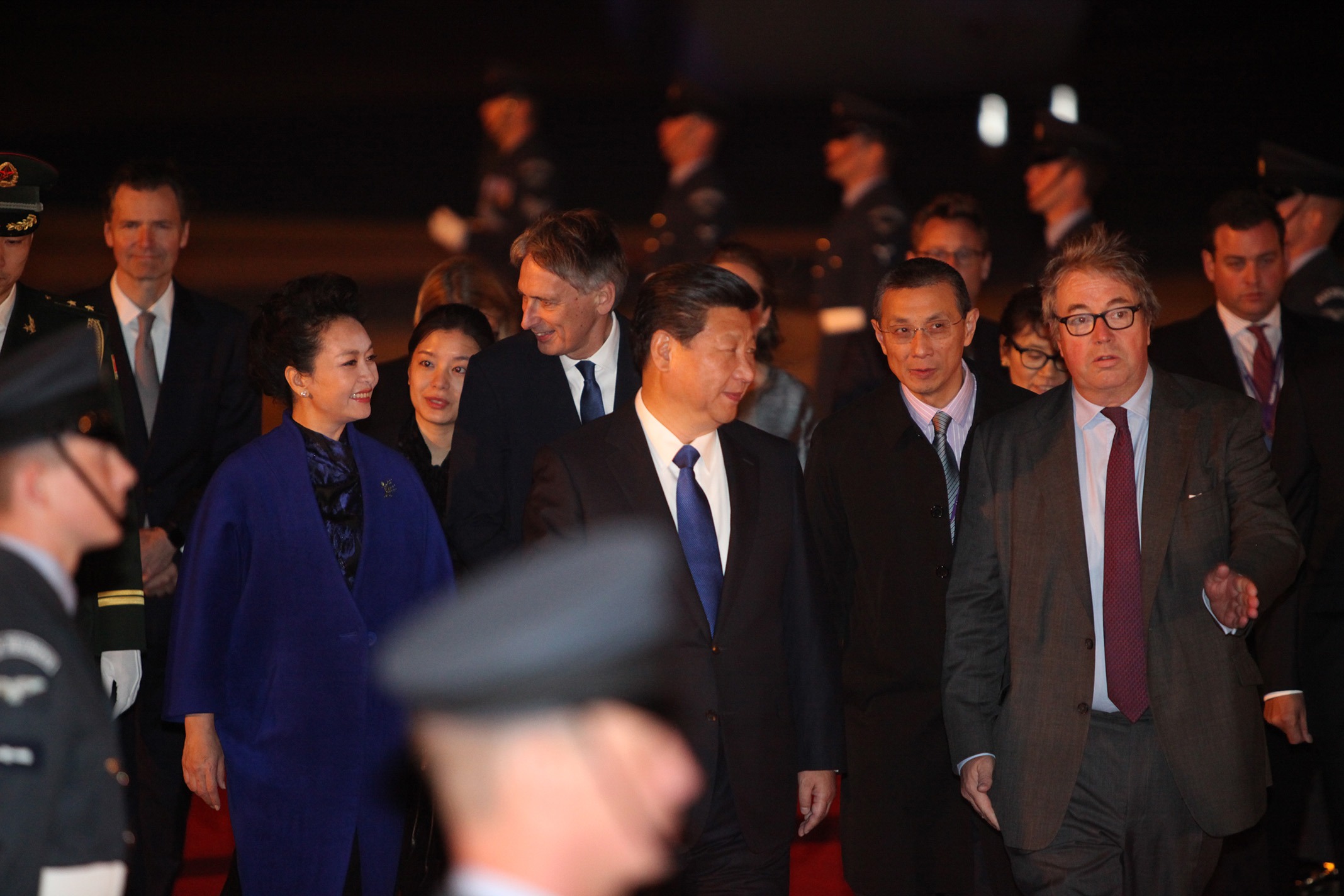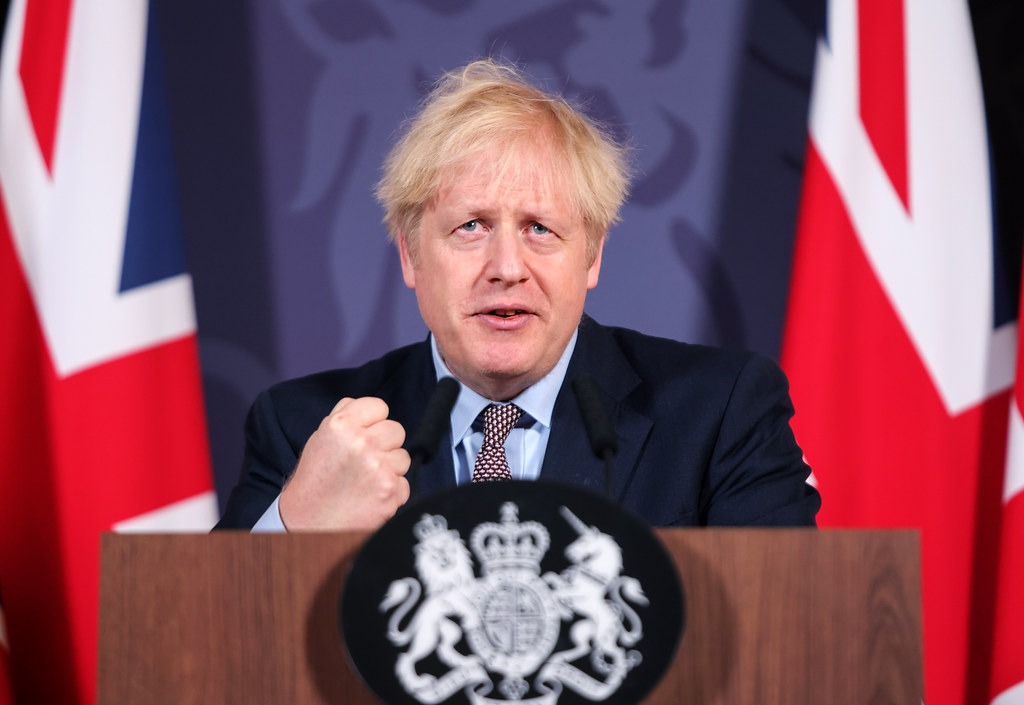Britain’s House Divided on China

By Thomas Lambert
Staff Writer
13/4/2021

China is everywhere in the British press. Last month, The Times accused the UK government of “toadying” to the US by labelling China a major geopolitical threat; the following day, The Daily Telegraph called Boris Johnson’s eagerness for Chinese trade “grasping naivety.” The Sleeping Dragon, the Needham Question, the Yellow Peril: British newspapers, notorious for their lack of scruple, have already begun to dredge up the same caricatures and canards that have haunted UK-China relations for centuries, haranguing the country’s China hawks and China doves with equal abandon.
Clearly, the UK is a house divided. But why, out of all the wedge issues, including Scottish Independence, Brexit negotiations, and national lockdowns, has China emerged as the most polarising of all? Will either side of the political aisle be able to offer a cogent policy on China?
First, there’s the Conservative Party, which has led the UK for over a decade, and looks set to continue leading it for the foreseeable future. For a long time, the UK’s Conservative Party and China’s Communist Party looked like contented, if improbable, bedfellows. Its former leader, David Cameron spent six years courting China. Then Chancellor of the Exchequer George Osborne trumpeted a “golden era” with the UK becoming China’s “best partner in the West.” On his 2015 state visit to the UK, Xi Jinping was treated to lunch with the Queen, and, famously, a pint of ale in a Buckinghamshire pub, pulled by Cameron himself. According to the Berlin-based Mercator Institute for China Studies, Britain remained Europe’s second-largest recipient of Chinese foreign direct investment as late as 2019.

Xi Jinping arrives in London for a state visit in 2015 (Picture Credit: Foreign, Commonwealth & Development Office)
This “golden age” is coming to an end. Since July 2018, the UK-Chinese relationship has been weakening controversy by controversy. A 2018 decision by the UK government to snub Huawei as its principal provider of 5G technology due to security concerns was soon compounded by a host of other Chinese abuses: Beijing’s genocidal treatment of Uyghurs in Xinjiang; the Hong Kong National Security Law; and the brazen persecution of journalists and whistle-blowers during the COVID-19 pandemic.
Approval ratings towards the Chinese government and people are at an historic low: according to a Pew survey, 74% of Britons reported a “negative” view of China last year, compared with only 16% at the beginning of the millennium. And the Tory party is responding: Jie Yu, senior research fellow Chatham House, has noticed it “switching gear to a more hostile attitude” towards China, and Foreign Secretary Dominic Raab has warned that “we can’t have business as usual with China.” And at the centre of it all has been an increasingly rigid position on Hong Kong: in July 2020, Boris Johnson announced the introduction of a new “British National Overseas passport,” or “BNO,” which promised to grant up to 3 million Hong Kong residents the right to settle in the UK. Though an immensely popular decision in the UK, it has incensed China, which has refused to recognize such passports.
The Conservative Party is not monolithic, of course, and some parts of it are more hawkish towards China than others. Most of its anti-China sentiment comes from a very specific bloc – a caucus of old-style British reactionaries, many of them “Hard Brexiteers” and lockdown skeptics. And, as Peter Harris, Assistant Professor of Political Science at Colorado State University, has pointed out, as Brexit and lockdown recede from view, China looks set to become the principal fault line along which the Conservative Party divides.
China looks set to become the principal fault line along which the Conservative Party divides.
Perhaps the most vocal member of this caucus is Tom Tugendhat, MP for Tonbridge and West Malling, who last year made headlines for referring to China as “one big open prison.” Tugendhat is a rising star in the Conservative Party – an ex-army reserver and Bilderberg Group alumnus who last April became the first head of the China Research Group, an association of mainly Conservative MPs seeking a “better understanding of China’s economic ambitions and global role.” Also influential in Tory circles, as well as in conservative publications like The Daily Telegraph and The Spectator is Chris Patten, the last colonial governor of Hong Kong, who distrusts the Chinese Communist Party (CCP) and has frequently condemned it for reneging on its promises to allow Hong Kong to keep its high degree of autonomy.
Former Brexit Secretary David Davis has been at the movement’s vanguard, arraigning Beijing for its “bullying tactics” over the Huawei dispute, while former Work and Pensions Secretary Iain Duncan Smith has gone so far as to lament China’s economic rise, remarking in an interview last year that “while China is a great nation, it’s posing a threat to the natural order.”
Atop this wave of anti-China feeling bobs the ramshackle frigate of Boris Johnson. Boris is often cast by the British left as a kind of facilitator of the anti-China caucus, a patron of the very Little Englanders and backbenchers that look set to become his fiercest critics. Undeniably, Boris has side-lined some of the relics from the Cameron-Osborne “golden age” – former Chancellor Sajid Javid, for instance, one of the architects of the surge in Chinese investment in the UK after 2010; and Philip Hammond, who urged more commerce with China at the height of the 2019 Hong Kong protests, and who found himself “kicked upstairs” to the House of Lords.

Boris Johnson (Picture Credit: BackBoris2012 Campaign Team)
But it would be wrong to single out Boris as the main cause of this anti-China sentiment. Historically, Boris is one of the Tory Party’s most unambiguously pro-China politicians: in 2013, he was one of the principle architects of the Conservative Friends of the Chinese in 2013, and last June declared “I am a Sinophile, and I believe that we must continue to work with this great and rising power.” What’s more, plenty of members of the Boris clique are far more circumspect in condemning China than their colleagues in the China Research Group. Most notably, Chancellor of the Exchequer Rishi Sunak has been dismissive of such “starry-eyed” proposals as economic sanctions for states found to be engaging in genocides, remarking that “China is going to be a significant feature of the global economy, and only increasing in significance, so it would be wrong to ignore that.”
This is not, of course, to say that there is any deep cultural or ideological affinity between Boris Johnson and the CCP, but rather that Johnson and his acolytes are acting in an ancient spirit of conservative moral flexibility for the sake of the commercial opportunities that China affords, just like Cameron and Osborne before them. Johnson appears to be trying to have his cake and eat it – to enjoy the economic benefits from trading with China whilst retaining the support of the Tory backbenchers. Though often misidentified with trade-warriors like former US President Donald Trump, he’s closer to German Chancellor Angela Merkel and other EU leaders, who concluded a trade deal with China in January.
Realizing this helps reveal the true colors of many of the government’s supposed “China hawks.” Foreign Secretary Dominic Raab, for instance, is often lumped in with the anti-China caucus: his impeccable pro-Brexit pedigree means that the media naturally associates him with figures like David Davis and Iain Duncan Smith, and his rhetoric on Hong Kong has been consistently assertive. Raab, however, is a loyal Johnsonite, and is best understood as the “bad cop” in Johnson’s China routine. As Foreign Secretary, Raab is bound to be the mouthpiece for all official disapproval over Hong Kong; tough talk, however, conceals a considerable alignment with Johnson’s position. Raab was notoriously soft on China during the Huawei controversy, and last month made sycophantic overtures to the UK’s “friends in Beijing,” reiterating the UK’s willingness to sign a trade deal and even offering to visit Hong Kong in a bid to diffuse Anglo-Chinese tensions. In fact, the entire cabinet remains remarkably aligned with Johnson’s knife-edge position; the question is how much longer such a position will be tenable.
The entire cabinet remains remarkably aligned with Johnson’s knife-edge position; the question is how much longer such a position will be tenable.
Then there’s the Labour Party. Scheduled general elections may be distant, but “snap” elections have become more and more common in recent years, with prime ministers hoping to capitalize on perceived waves of enthusiasm. What’s more, the COVID-19 crisis has given British parliamentary politics an unusual twist: Johnson is increasingly looking for cross-party support in order to stave off challenges from his own backbenchers, as he did with 2020’s national lockdown legislation. Even without winning an election, then, the Labour Party may find itself in a position to call the shots.
What’s Labour’s stance on China? As the opposition party, its position is, unsurprisingly, vaguer, with its leader, Keir Starmer, cutting a protean figure on many of the day’s most divisive issues. His recent demands for “sanctions” against China for its abuses in Xinjiang, for example, were restricted to those officials directly implicated in them – demands which have, in the last few days, already been met by the government.

Keir Starmer (Picture Credit: Rwendland)
Whilst one might expect Labour to be reluctant to make common cause with a Tory caucus whose racism, nativism, and xenophobia it has spent the last four years pillorying, there is, in fact, ample reason to expect a tougher stance from Starmer in the coming months than from Johnson: not only does he have a background in human rights law, he also heads up a party whose ideological commitment to globalism and free trade has been on the wane for some time. Indeed, any particularly conciliatory attitude to China in the name of a trade agreement would risk an accusation of “Blairism” – an accusation which, given the current strength of anti-Blairite movements like Momentum (the far left grassroots organization which helped propel Jeremy Corbyn to the Labour leadership in 2015), could be crippling. Sure enough, there appears to be some consensus in the Labour Party about the need for economic sanctions, particularly with a targeted, “Magnitsky style” tenor. In fact, when China “realism” is invoked among Labour moderates, it’s almost never in an economic context; rather, Labour’s China “realists” stray close to a definite strand emerging among advisors in the Biden administration: a hawkishness that extends its talons into the countries’ economic relationship, but which is willing to cooperate on other international issues, most notably climate change. Whilst there are some pockets of pro-Beijing sentiment within the party, overall, sympathy for the CCP has little traction in Labour.
For all the Manicheanism of the British press, then, the real divide in UK politics lies not between left and right, or even between pro-China and anti-China factions. The real battle is between those who are willing to put their money where their mouth is and punish China for its human rights abuses, even if it risks damaging economic relations (like Tugendhat and Corbyn), and those who are not.
The real battle is between those who are willing to put their money where their mouth is and punish China for its human rights abuses, even if it risks damaging economic relations, and those who are not.
Much future policy is already certain: official objections to abuses in Xinjiang and Hong Kong are bound to persist, and the BNO scheme now seems sacrosanct. What’s interesting, though, is where Britain goes beyond this. Were British policy a mere agglomeration of the wills of cabinet members, we might expect of UK economic and trading policy a straightforward return to Boris’s pro-business, “Sinophilic” roots. David Davis and Iain Duncan Smith have already been phased out of the cabinet; those who remain are either China doves or paper tigers. In all likelihood, Boris will take advantage of the next cabinet reshuffle to bring more even people like Rishi Sunak to the fore, now that the Brexiteers and right-wingers have served their purpose. Perhaps surprisingly, too, given China’s historic unpopularity in the UK, polls suggest that most Britons would actually prefer a more dovish approach: according to a recent survey by the British Foreign Policy Group, “38% of Britons would prefer that Britain’s international activities emphasize economic and strategic defence interests, 19% would prefer them to emphasize democracy and human rights, and 30% would like to see an equal balance [of] the two.”

Rishi Sunak (Picture Credit: Ministry of Housing, Communities and Local Govt)
If Brexit showed one thing, however, it’s that the British media’s moral outrage machine must be propitiated. Boris Johnson is, above all, a creature of political expediency: he compromised his globalist principles before (lest we forget, he advocated remaining in the EU until as late as 2015), and his current vacillations suggest that he may well be forced to again. There remains, for a start, the threat of desertion from the Conservative Party’s right-wing. The China Research Group continues to vociferate – joined, in recent months, by an undead Nigel Farage – and could well become a mass movement, if only afforded a grain of dirt around which the pearl of ideology can coalesce. This is how populists like Farage operate: one crisis, one scandal, one leak away from popular legitimacy. Most worryingly of all for the pro-Johnson camp, such a crisis could well be out of the cabinet’s hands: if China were to retaliate against the BNO scheme with trade sanctions (like it’s done with Australia) anything less than total defiance would become, in the hands of the British media, political suicide.
This is not, of course, a wholly negative phenomenon: after decades of neoliberal orthodoxy, many in the UK will be refreshed to see political principles coming back to the fore. The question, of course, is whether a brief moral stand in the name of humanitarianism will lapse, under the influence of the Conservative anti-China caucus, into a miserly isolationism and nativism that sees all transnational commitments – climate accords, global labor laws, international declarations of human rights – as grounds for suspicion. In this new epoch of moral outrage, probity, and principle, Britons should be careful of what forces they unleash.
